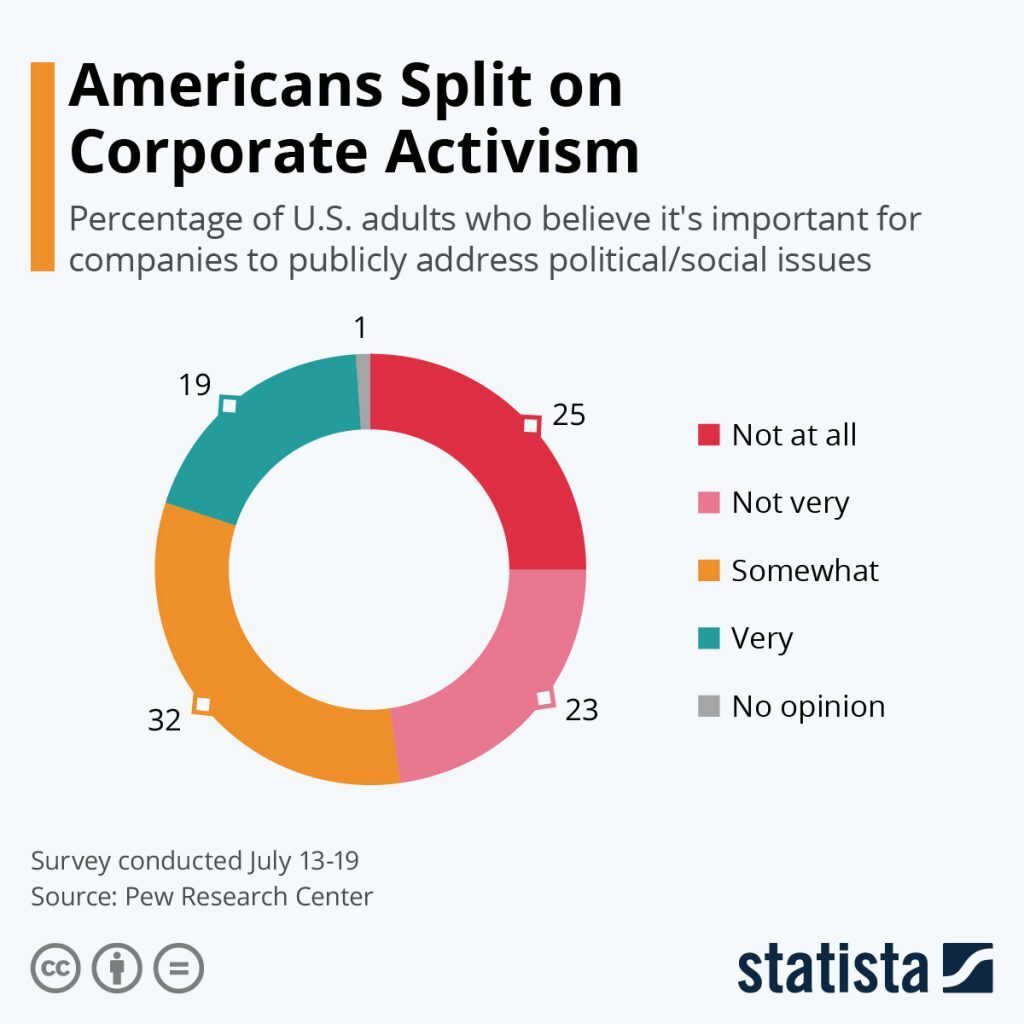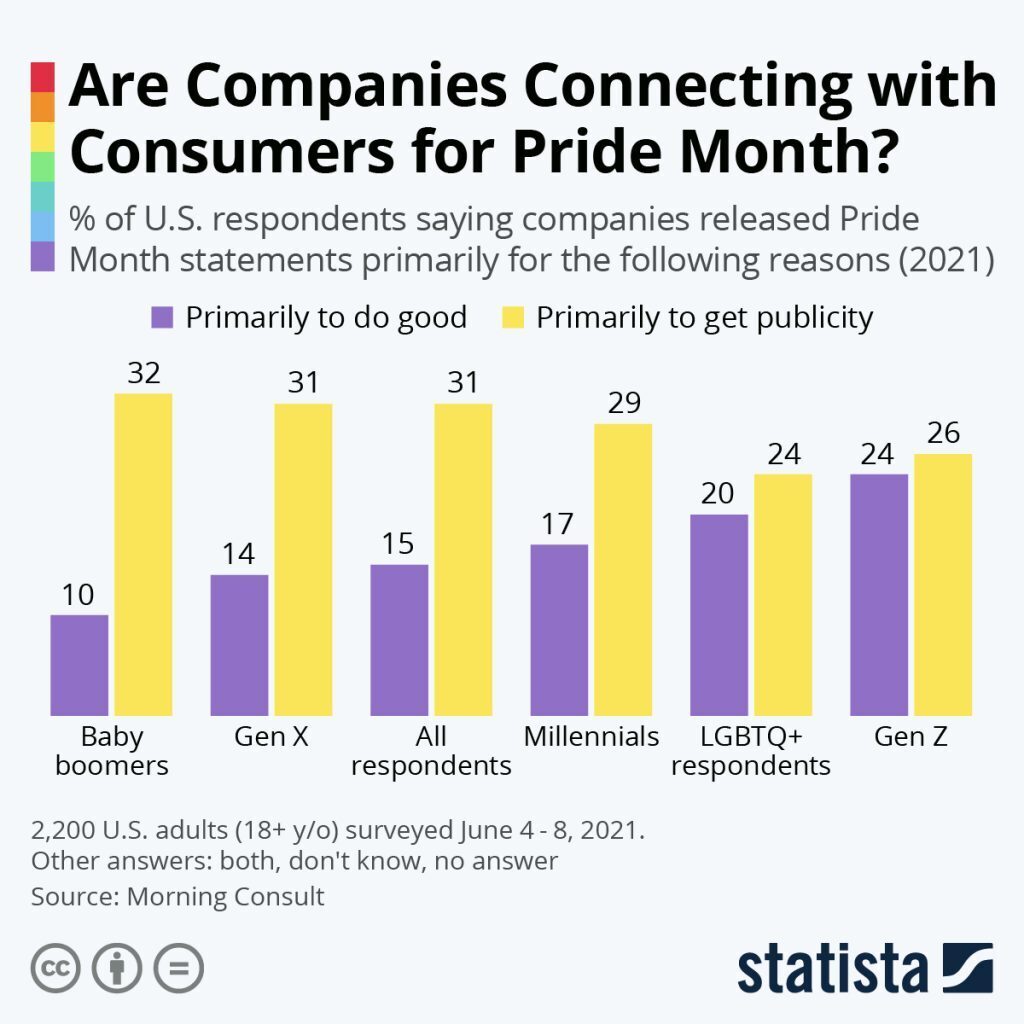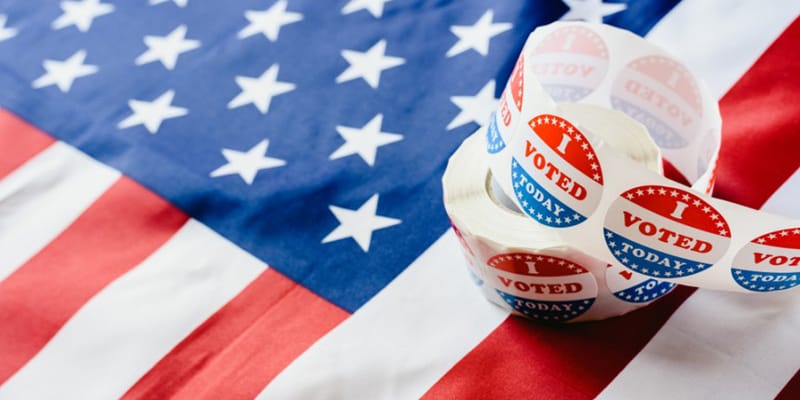Privacy Canada is community-supported. We may earn a commission when make a purchase through one of our links. Learn more.
Corporate Activism: Virtue Signaling without Virtue?

We’re asked to recycle. We’re asked to reuse. We’re asked to support marginalized communities. And we do it because we care. We do it because we’re good Canadians who simply want the best for our neighbours, our friends, and ourselves. But what about the corporations and big companies whose products we love and use? Is their corporate activism a sham or do they really care?
When does activism have an adverse effect on consumers? What happens when companies say they’re allies online but their corporate activities are anything but aligned with their customers? Are they actually activists? And how do they know which issues we care about?
When the right moves cover up the wrong ones
When large companies and corporations get into their activist groove, are they forgetting something? Yes. They’re forgetting to protect their customers. Data breaches, hacks, and other malfeasances are common in any industry, and because we live our lives online, our personal information is out there. We input our address and phone numbers when we order goods. We sign up for mailing lists and email blasts so we can get exclusive discounts (that aren’t exclusive since they’re offered to everyone who has signed up).
Companies collect our data to compile customer profiles on us, to see how we lean politically, and to send us targeted ads. With that information in tow, these corporate giants can do a temperature check and see where society’s leaning. Once they see where we align, they adapt to what they believe we want to see. The problem is they’re not adapting their policies, they’re adapting their message by using our data.
What the legally collected data tells us
In a 2021 report called Corporate Data Responsibility: Bridging the Trust Chasm from auditing firm KPMG, two online surveys were used to compile information about how consumers feel about their data. The first survey polled 2,000 adults in the United States, the second polled 250 bigwigs involved in security, privacy and data companies with more than 1,000 employees.
Here’s what KPMG found behind the scenes:
- 70% of the companies they analyzed grew their collection of personal consumer data from 2020-2021
- 75% of the bigwigs polled said they’re cool with all the data their company collects
- 95% of those same bigwigs claimed their organization has very strong data protection measures in place
- 62% of the bigwigs – we really do love that word – felt that their companies should be doing more to protect their consumer’s data
- 29% copped to the fact that their company sometimes uses unethical means to get our data
- 17% said their organization sells consumer data to others
Here’s what KPMG found on the customer side:
- 86% of respondents are concerned about data privacy
- 78% were fearful about the amount of data being protected
- 40% don’t trust companies to use their data ethically – can you blame them?
- 13% don’t even trust their employers – um, that’s a problem!
- 47% are scared of the possibility of their data being hacked
- 51% are concerned about their data being sold
- 30% said there are no circumstances where they’d willingly share their data
- 12% claimed they’d share their data if it would make ads more relevant
- 17% would be comfortable sharing their data if it would help companies improve their products/services
- 52% are cool with businesses recording calls for quality and training purposes
- 57% said they’re good with facial recognition technology being used in criminal investigations

The divide between how consumers feel about their data and how companies do is huge. If this divide isn’t bridged, we’re looking at an even bigger risk. Our data isn’t up for grabs and if companies want us to feel more comfortable about what they’re doing with our data, they need to be more transparent. Companies will lose out on valuable insights that drive growth if they keep using our personal information for evil instead of good.
Image Source: Statista
Pinkwashing: when companies (lightly) wash their hands of responsibility
According to McKinsey & Company, a firm that specializes in helping companies be more inclusive, digital advertising is valued at approximately $300 billion globally. This number signifies that we’re in for more targeted ads that specifically speak to us. Our privacy concerns won’t disappear anytime soon as long as we’re seeing companies align with our values. You’d think this would be a good thing. Finally, our favourite brand is celebrating Pride with a line of rainbow products … that are only available in June. Why can’t these products be available all year round?

This is what is known as pinkwashing. When companies decide that they support the LGBTQ2IA+ community when it’s convenient for them, not the consumer. Instead of standing with this community all the time and putting measures in place to protect them, they’re making a statement once a year. They’re not celebrating Pride month, they’re celebrating themselves during corporate Pride month. “Look at how much we love gay people when it’s convenient for us!”
What about their employees? “Oh,” they probably say. “We let our staff put their pronouns in their email signatures.” Good job! Not really. It’s not enough. When Netflix decided to keep ties with legendary comedian Dave Chapelle even though his recent work is anti-trans, the company’s trans employees weren’t given a say.
Moreover, Netflix doubled down on its stance saying that employees need to leave their personal beliefs at home or they can work somewhere else. This is a great attitude to have if their employees believe that Jewish people can shoot lasers into the sky to control the weather or that the world is flat. But what about their employees who simply want to be treated as equals because they’re trans or allies of the trans community? With all this data collection from Netflix’s users, you’d think they’d know that most of us would prefer to support the company’s employees if they staged a walkout against anti-trans content instead of sitting down to watch Dave Chapelle’s TERFy rants cloaked in the form of comedy.
When we do speak up, we are sometimes listened to
It’s not all bad. If we look at the boycotts of Harry Potter creator J.K. Rowling after she made anti-trans remarks repeatedly, we know we can impact change. Rowling was not invited to participate in the HBO Max/Crave Harry Potter reunion and most of the film franchise’s stars have spoken out against her and her hate speech. The same can be said about Johnny Depp’s involvement in another Rowling offering, Fantastic Beasts. After Depp’s (alleged – we have to say that) abusive treatment of ex-wife Amber Heard came to light, fans were quick to protest his role in the films and he was removed from future iterations (for a minute anyway, he’s likely coming back).
Furthermore, gaming company Bethesda was mocked mercilessly on social media for changing its Twitter logo to a rainbow flag for Pride except for regional accounts in places where the LGBTQ2IA+ community is not supported at all (Russia, Turkey, and parts of the Middle East). Bethesda’s reasoning is that the company would lose money if they openly supported Pride in the aforementioned places. The Internet was not having it and Bethesda was called out immediately.
Companies that need to put their money where their mouth is
It’s no secret that corporations are out to make money. We’re consumers. We get it. What we don’t get is when they present a public image that is aligned with their digital activism but are the worst behind closed doors.
The following companies need to check themselves before they wreck their social standing:
A bite of a poison Apple
Apple makes a suite of useful tech products that are manufactured in places where workers have little to no rights. In 2019, the company was called out by many after a report was released saying Apple was forcing their workers to put in long hours and were punished for not meeting deadlines. The company has come out with a report and various statements where they say they’ll do better. They also steal our data and even with the “Ask App Not to Track” prompts we get when we download something from the Apple store, they’ve still got our personal info when we set up our Apple ID.
Instagram blacks out
What was started in earnest by two Black women in the music industry, became a hard lesson for Instagram. Originally, #TheShowMustBePaused was meant for music industry professionals to hold their sector responsible and reflect on the inequalities within. However, the good intentions behind the original message were overshadowed when celebrities took it upon themselves to offer misguided allyship in the form of a black square. Instagram’s algorithm did the rest until our feeds were full of black squares that not only hid the offerings from Black creators and artists but became a way for white celebrities to pat themselves on the back. What did Instragram do to correct this issue and ensure that the black squares weren’t taking over our feeds and blocking out relevant content? Nothing. Oh, and Instagram uses our data and who we follow to send us targeted ads and shares our personal info with third parties. So, that’s fun.
Bell shouldn’t talk
Every January, Canadians can’t go anywhere (online and in-person) without seeing Bell’s Let’s Talk campaign. The goal of the campaign is to raise awareness for mental health with Bell promising to donate 5 cents to various mental health organizations for every text, tweet, TikTok video, and Facebook post that uses #BellLetsTalk. Sounds great, right? But alas, Bell is pulling a fast one on us considering the company is riddled with allegations of mistreatment and firings of their employees who speak up about their mental health struggles. Plus, Bell Media has a history of laying off staff before the holidays and charging prisoners for phone calls made from provincial jails. This is a clear instance of a huge corporation’s virtue signaling without bothering to be virtuous.
Go fund yourself!
GoFundMe, Inc. isn’t a non-profit. Their marketing would have you believe otherwise. It’s not a charity but a privately owned for-profit organization that is free from the constraints and controls required by non-profits to function. There are no safeguards in place to ensure that at the end of each campaign the money goes where it’s supposed to. GoFundMe is free to keep its accounting away from the public and the government or disclose how much of the money raised comes from fraudulent campaigns.
We all scream for Ben and Jerry’s
Except those screams are from migrant workers that are forced to work 14-hour days and live in small trailers during the brutal Vermont winters. This may come as a shock to most since the company is known for its philanthropy and ability to stand up for human rights. However, some of the dairy farms they partner with have been accused of violating the rights of their immigrant workers. The good news is that once called out, Ben and Jerry’s has been working to make this right.
Build a wall around Walmart
Walmart has a history of mistreating their employees and making them work long hours and for Juneteenth 2022, they stepped in a big pile of no-no. Their line of Juneteenth products like ice cream and clothing didn’t go over well with their customers. Juneteenth was officially granted the status federal holiday in the United States in 2022 after president Biden signed it into law but unlike Christmas which has been commercialized since humans understood that Santa can sell anything from Coca-Cola to cigarettes, this isn’t the holiday we’re ready to celebrate in that way. Walmart has since apologized for their Juneteenth gaff but this probably won’t be the last time they mess up trying to be activists(ish).
Can we ensure our data is protected and that companies act right?

There’s a simple solution: hold companies accountable. Our online privacy and security matters and if we take companies that exploit our data to task, we could see major social change. Standing up against corporations isn’t easy and we don’t have to give up our smartwatches or stop shopping at certain retailers altogether but we can be vocal on social media. Making our voices heard online may eventually stop pinkwashing and the shady practices used to collect our personal info for corporate gains.
Through digital activism, we can speak up against corporate injustices and push to keep our data safe. It won’t happen over night but we can turn consumer trust into a must for all companies and not just a wish that we make every time we enter our emails to get 10% off.
Additional Sources:
- https://www.business-humanrights.org/en/latest-news/commentary-ben-jerrys-is-not-living-up-to-its-values/
- https://www.theguardian.com/business/2022/may/25/walmart-juneteenth-ice-cream#:~:text=Walmart%20has%20apologized%20for%20selling,Value%20label%2C%20media%20outlets%20reported
- https://www.apple.com/supplier-responsibility/pdf/Apple-Combat-Human-Trafficking-and-Slavery-in-Supply-Chain-2020.pdf
- https://www.business-humanrights.org/en/latest-news/china-apple-accused-of-violating-labour-laws-as-employees-at-iphone-factory-found-working-100-hours-of-overtime-being-punished-for-not-meeting-targets-incl-co-comments/#:~:text=In%20September%202019%2C%20China%20Labor,iPhone%20factory%20in%20the%20world.
- https://www.theguardian.com/us-news/2018/feb/25/ben-jerrys-migrant-workers-dairy-farms
- https://www.nbcnews.com/think/opinion/blackout-tuesday-instagram-was-teachable-moment-allies-me-ncna1225961
- https://cybernews.com/privacy/instagram-is-sharing-79-of-your-personal-data-with-third-parties/
- https://www.vulture.com/2020/06/blackout-tuesday-guide.html
- https://theconversation.com/bell-lets-talk-about-colonialism-racism-and-ableism-153823
- https://readpassage.com/hypocrisy-aside-bells-lets-talk-campaign-is-deeply-harmful/





